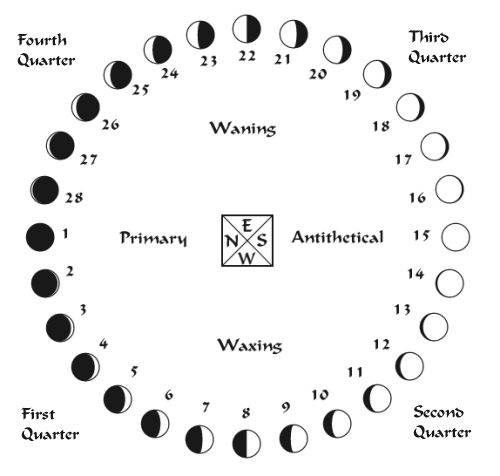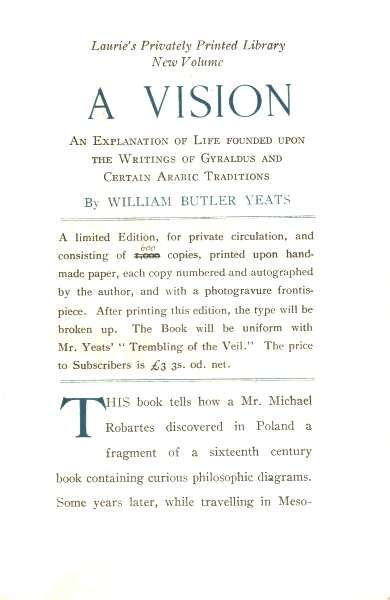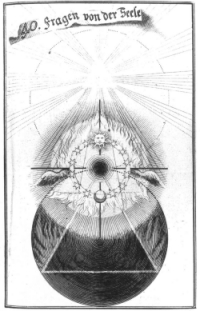@Electra phil,

Yeats states that the 'whole system is founded upon the belief that the ultimate reality, symbolised as the Sphere, falls in human consciousness, as
Nicholas of Cusa was the first to demonstrate, into a series of antinomies' (
AV B 187) and refers later to 'a phaseless sphere that becomes phasal in our thought, Nicholas of Cusa's undivided reality which human experience divides into opposites' (
AV B 247). Elsewhere Yeats refers to the 'antinomy of the One and the Many that Plato thought in his
Parmenides insoluble' (
VPl 935), and he preserves this Platonic opposition in his duality, though expanding it by association to include, the objective and the subjective, Love and Strife or Concord and Discord, the Solar and the Lunar, and asserts the constant conflict of the two opposites.
The most basic tenet of alchemy is that there are two primary ways of knowing reality. . . . The first way of knowing is rational deductive, argumentative, intellectual thinking that is the hallmark of science. . . . The alchemists called this solar consciousness, and assigned it many code words, such as the King, the Sun, Sulphur, Spirit, the Father, and ultimately the One Mind of the universe. . . . The alchemists called the other way of knowing lunar consciousness. This intelligence of the heart is a non-linear, image-driven intuitive way of thinking that is an accepted tool of the arts and religion. Among its many symbols are the Queen, the Moon, the metal Mercury, the Soul, the Holy Ghost, and ultimately the One Thing of the universe.
It is possible to see, perhaps, why Yeats avoided giving a clear table of oppositions, since rather too often critics latch onto these lists and take them as definitions, when what is most important is the underlying principle, while the attributions can change and vary according to context. The fundamental idea of the
primary is unification while that of the
antithetical is separation, so that
primary forces bring things to unity, sameness, and concord, whereas
antithetical forces bring things to individual identity, differentiation, and discord. These themes inform the terms' names, though rather obliquely: 'the subjective cone is called that of the
antithetical tincture</I> because it is achieved and defended by continual conflict with its opposite; the objective cone is called that of the
primary tincture</I> because whereas subjectivity. . . tends to separate man from man, objectivity brings us back to the mass where we begin' (
AV B 71-72) and a draft version elaborates this: 'in the
antithetical we are all different, each a microcosm, in the
primary we are one, & because all are one before they are many'. In the dualism of the One and the Many, the
primary harks back to unity, so that it is ultimately the dominant
tincture, but the One, in itself, is static and therefore sterile. Though the
antithetical is the secondary opposition, it is the necessary expression of difference and conflict, and therefore movement and life. A first degree of extension from these ideas is that the
primary is identified with the macrocosm, God and the equality of all souls, while the
antithetical is identified with the microcosm, humanity and difference of all people.
The division of
primary and
antithetical is so fundamental to the System that it is often difficult to generalise about experience or a being's
purpose in life according to the System, because the two diverge so much, and if the being mistakes the purpose, then the life will be 'out of phase'. Since the
antithetical is the basis of life and humanity, in opposition to after-life and spirit-knowledge, Yeats almost invariably takes the
antithetical as the typical case or the centre of his interest, and the
primary, despite its name, is forced into the secondary role. This dualism inevitably entails a constant balancing of the one hand against the other, and Yeats evidently finds that sometimes his interest in the Wheel's objective half is too weak to sustain extended consideration. Although the
Wheel contains a spectrum, the two halves are so radically at odds that it is difficult for the person of one half fully to identify with the other.
Reference webpage above.





